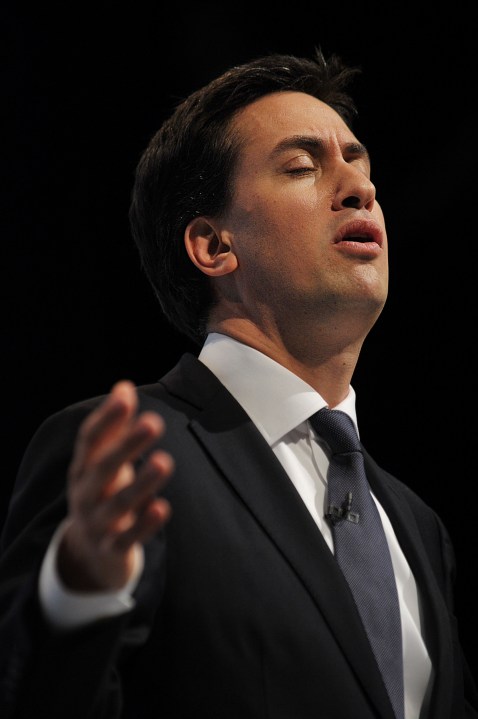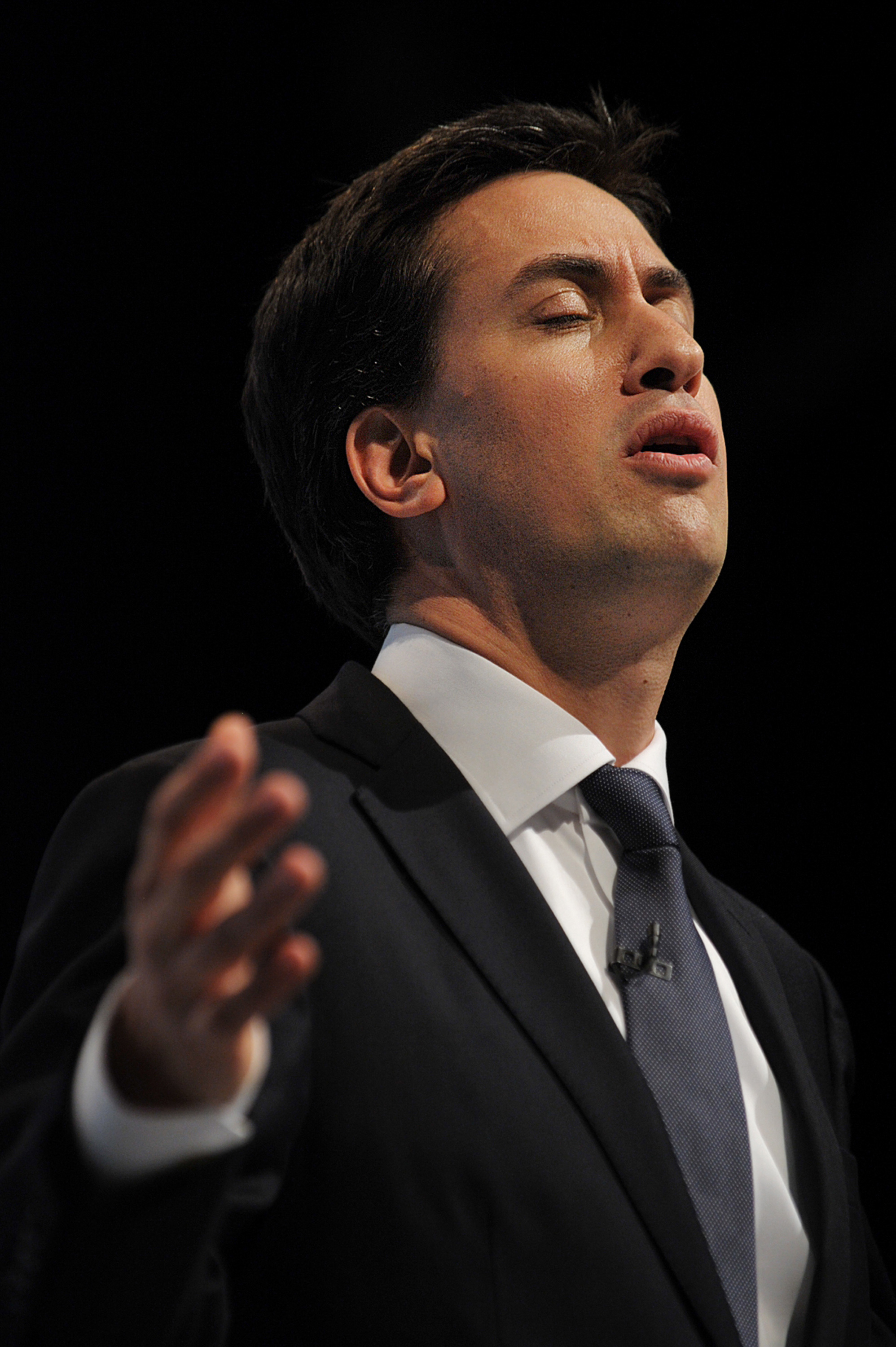 Miliband’s speech was meant to reach beyond the hall. “I aspire to be your Prime
Minister,” he told country, “to fulfil the promise of Britain.” But, after an hour long speech, it is not wholly clear what the “promise of Britain” is.
Miliband’s speech was meant to reach beyond the hall. “I aspire to be your Prime
Minister,” he told country, “to fulfil the promise of Britain.” But, after an hour long speech, it is not wholly clear what the “promise of Britain” is.
Miliband offered the hand of partnership to small businesses, the ordinary working family, those who want a cheap further education, working mothers, but it was not clear what they would obtain from the Labour leader. This was a speech virtually bereft of policy direction or a coherent theme. We have a clear idea of what and whom Miliband is against, but very little idea of what he is for. For instance, he declared himself a believer in people but was reluctant to talk about devolving power from the state. Even if the country was listening with rapt attention to the leader of the opposition, it would be making an almost blind choice in supporting him.
That said, there were some notable passages in the speech. Miliband spoke of “responsibility” once or twice. Desperate to restore Labour’s economic credibility, he vowed that the next Labour government “would only spend what it can afford” – you wonder what Ed Balls might make of that. He was also effective at challenging David Cameron’s ‘Broken Britain’ narrative: “the problem is not the British people,” he said, cleverly exposing Cameron’s disengaged moralising. Miliband went one better with his attack on the government’s NHS reform. He revived the “you can’t trust the Tories on the NHS” line, which inspired a standing ovation and enthusiasm from Labour’s union paymasters in the front rows. “It’s your NHS,” he told the country and pledged to always protect it. There was no similar attack on the government’s reforms of education, which directly affects most of the delegate councillors and Brothers assembled at this conference.







Comments